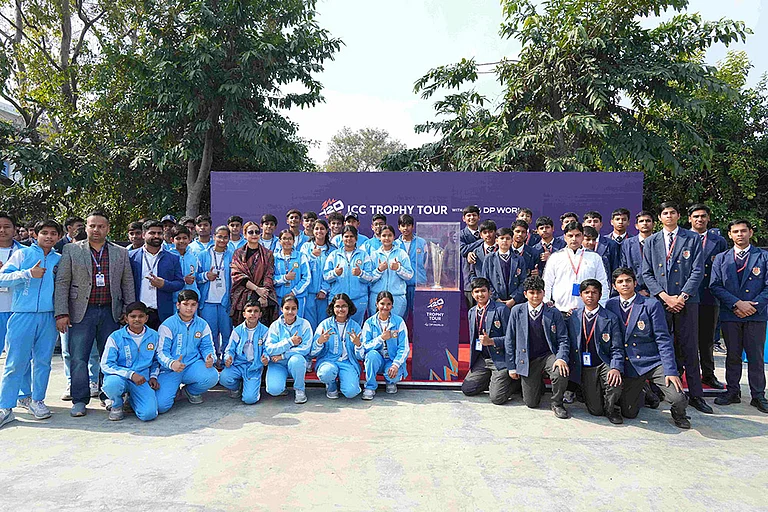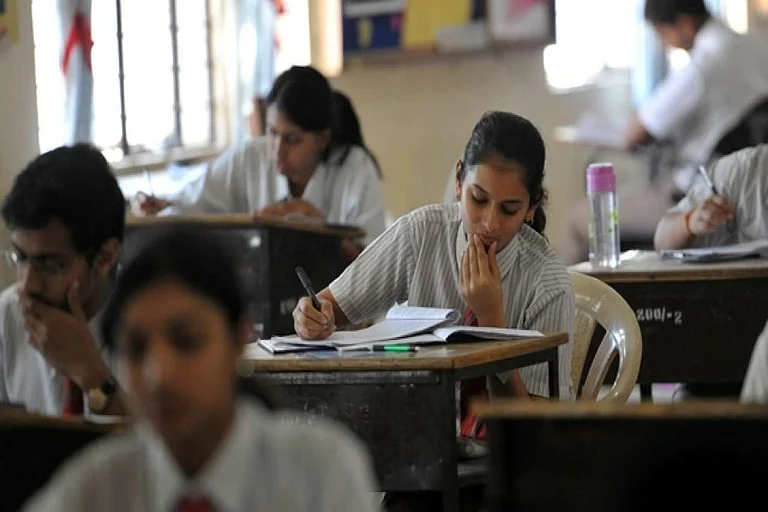The ever-growing access to the internet and consumption of digital content has transformed the world. Journalism too has seen a paradigm shift in how news is produced and consumed. Keeping up with the changing times is key to staying relevant in the profession, but several journalism students and recent graduates feel their classrooms did not prepare them enough for the real world.
They say their course did not cover the essentials of their job and that their understanding of the profession was very different from what it turned out to be.
The Covid-19 pandemic made it worse. For much of 2020 and 2021, the interaction of students with their teachers and industry was limited to virtual sessions, and that further affected their training. Students and recent graduates who spoke to Outlook claim that even something as basic as seeking a job was not a subject of discussion in some classrooms.
“We were under the impression that getting a job would be smooth. We believed we would send our CVs, get a call, land an internship which would turn into a job. That didn’t happen. No one prepared us for the long wait to hear back from recruiters,” says Sonal Singh, who graduated from Banasthali Vidyapeeth in 2021.
The emphasis on theory also baffled students, with a student graduating this year from the Indian Institute of Mass Communication (IIMC), New Delhi, saying that “it made no sense”.
“Theory classes were not that necessary! They never made sense to me. I went there for hands on training,” says this student, adding that she could have read theory on the internet too and she would not have required a college for that.
IIMC, and indeed other state-run journalism schools, have another issue that makes many students uneasy — the little scope of criticism.
“We were not supposed to be critical of the government. We were told to not write anything ‘controversial’ in our in-house journals,” says the IIMC student.
The lack of acceptance of criticism is, however, not unique to IIMC or the present government, under which IIMC functions. In the Congress-run Madhya Pradesh in 2019, as many as 23 journalism students at Makhanlal Chaturvedi National University of Journalism and Communication (MCU) were expelled for protesting against alleged caste-based discrimination by their teachers.
For the most part, however, recent journalism graduates don’t flag such issues of dissent but the mismatch between the skills taught versus the skills needed by news organisations and the outdated methods of teaching.
Sonal says, “The teachers appeared to not know exactly what’s needed in the industry. We were trained on Adobe, but, after I started working, I found that everyone uses Canva. Almost everything that helps me in the job has been learnt on the job itself. The classroom barely prepared me for the real world.”
The IIMC student quoted above says she and her fellow students turned to YouTube to self-teach softwares such as Adobe and InDesign.
Sonal says that her mass communication teaching was limited to journalism, which she now feels should not have been the case.
“Journalism is just one of the mass communication mediums but our teaching was limited to it. There is advertising and PR, filmmaking, and so much more to mass communication, but we were not taught along those lines,” says Sonal.
Veteran journalist Sanjay Kaw says journalism schools often have a misdirected approach. He says the two things that a person needs most at the beginning of their career are basic reporting and editing skills.
"Reporting and editing are key to becoming a journalist. Yet there are only three-four classes on these subjects in a semester. A student should be made to write daily because you learn writing by writing itself. There is no other way," says Kaw, adding that instead of reporting and editing, schools often focus more on things like world affairs or theory of communication which do not help in the real world.
He further says, "When you join an organisation after college, you do city reporting for next few years. On the desk too, you are mostly editing reporters' copies. Therefore, reporting and editing are the most essential skills you need which often end up being sidelined in classrooms."
Kaw also says that when a journalism graduate joins a news organisation, they go through training but that should not ideally be the case.
"A journalism graduate should be prepared to take up their responsibilities in the newsroom from day one. By the time they graduate, they should have learnt these things. They can finetune their reporting and editing skills when they join an organisation, but they should not be learning it there itself. If they have to be trained after graduating, then it means schools were unable to prepare them enough," says Kaw, who currently works at The Asian Age newspaper.
There is also the issue of disconnect with students, says Kaw.
"Many experienced teachers at times forget that students in front of them have to be taught from scratch. They are like nursery students and teachers sometimes forget this. They interact with them as if they are at par with them. This leads to a situation where students cannot grasp what's being taught. It's like teaching a nursery student the contents of high school syllabus," says Kaw.
The mismatch of skills taught versus skills needed in the industry is not just limited to India. It's seen in the West too. Journalists in the West say their journalism classrooms also lack in teaching emerging areas such as audience engagement, brand journalism, or even teaching students how to handle the stress of the job.
New Jersey-based media educator Dr. Mu Lin noted on her blog, “That has been a golden time [the previous years] for journalism schools. Everything was established, stable and predictable – jobs were there, curriculum was created, and sub-disciplines were well-established (photo journalism, magazine journalism, etc). For a long time, the focus on training journalists for news media has served everyone well – j-schools, j-students and media employers.
“However, with the ongoing explosive growth in social media and mobile devices, journalism is being disrupted in big ways and journalism schools are also caught unprepared. For one thing, how can we convince a student to choose journalism as his or her major when all we’ve been hearing is newspapers being closed, reporters losing their jobs?”
One area where schools lacked was audience engagement, as journalists now not just write for their publications but for audiences as well, who now have a lot of choices and can simply swipe away if they don’t feel connected to the content.
Audience engagement includes writing newsletters, managing social media, using analytical tools to know what’s being consumed and synchronizing content production with consumption patterns. These things never make their way to most classrooms.
“'So, tell me more about audience engagement,' one of my journalism professors said. ‘What does a day at your job look like?’ This question became commonplace since I landed my first audience engagement internship about two years ago. Newsroom colleagues, classmates, industry veterans —even my journalism professors— did not understand the concept of audience journalism, let alone the fundamental role it plays in newsrooms,” wrote Kami Rieck, Editor of Bloomberg Opinion in an article.
With the emergence of platforms such as Substack, newsletters are becoming more and more essential elements of journalism. Not teaching it in classrooms would make students unprepared for something that’s becoming more commonplace by the day.
This partially rests in the lack of industrial experience among teachers, says Sonal.
She tells Outlook, “I had only one teacher who had been a journalist. The rest were throughout academics with no real-world experience. They didn’t appear to know what’s happening these days in the world of news. I feel that teachers too should have regular sessions to update themselves like we are supposed to have mandatory internships.”
Mental health is another aspect that classrooms fail to address properly. With growing harassment of journalists online, ranging from trolling to threats of harm, several students learn on the job that it’s a major part of their lives.
“The workforce is low-key exploited and your mental health goes for a toss very often, especially in mainstream journalism. And then, for many, passion takes a back seat and people switch to other connected fields. My decision to move to tech journalism was also slightly influenced by the fact that I value my mental health and personal life. Being a journalist, ‘first to break the news’ isn't something that appeals to me anymore,” says Anubha Pandey, who graduated from a Noida-based college in 2019.
This remains a concern in Western classrooms too.
Vesper Henry, a non-binary student journalist at the Grady College of Journalism at the University of Georgia, told Prism Reports that “no professors have offered any instruction about what students should do when they inevitably have to deal with online trolls, in-person harassment, or hostile sources”.
The issues of mental health, coupled with harassment, worsen as the various disparate identities of a person come together — journalists who are women, non-binary or queer, or from minority communities can often have worse experiences, and classrooms barely touch these subjects, if at all.
A University of Texas study noted that journalism schools should help prepare students to handle work-related harassment that they are likely to come across on the job, adding that they “should be taught how to deflect what they may face online, so it does not hamper their ability to engage online”.
“As students, we had a very glittery and glamourous perception of media. After joining the industry, we found that bosses could be toxic and colleagues could be draining and that was not something we were prepared for,” says Sonal.


























